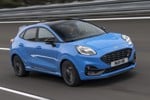John Mousell, chairman and managing director of Motor World, describes himself as happy, but neither smug nor complacent, about the parts and accessory retail group's recent success.
With a long career in the automotive market he knows too well that the tide can turn, and fast. Motor World's future is looking very much brighter, although without his team's intervention the company could have disappeared altogether.
Between 1996 and 2000, Motor World was owned by the now defunct Finelist Group. Having been appointed by chairman Chris Swan to run Motor World, Mousell saw the break up of Finelist as the perfect opportunity to take full control of the retail chain.
“The desire was always there, so a management buy out was a natural move,” he says. While under Finelist's control, through acquisitions Motor World increased in value from £38m to £55m, and at its peak had over 400 stores. Now there are 200, but Mousell says the business has never been in better shape, and further expansion is planned.
Motor World is the UK's second largest automotive and parts accessory retailer behind Halfords, a company which Mousell knows much about, having spent more than 20 years in the organisation.
“I had a great career and loved every second of it, until the takeover by Boots,” he says.
“There was a definite clash of management styles – but there are no hard feelings.” Mousell sees his own management style as open and motivational, saying: “We're not autocratic at all. I firmly believe in open door management and like to think that the senior team is approachable. However, I'm conscious that nearly all of the ambition and direction is coming from the top down, and that's something which needs to change.” Targeting his middle management to be more pro-active in decision making, and spending more time listening to what the shop staff have to say are two tactics being employed.
Part of Mousell's drive for an open management style comes from his Finelist experience. “Finelist was extremely autocratic,” he says.
“It had a chairman with a strong vision; and that vision was for vertical integration. Finelist wanted to control the entire supply chain, from providing the raw materials through to manufacture, packaging, distribution and retail. It was fantastic in theory, but doesn't work in practice.”
The sub-message appears to be that a more democratic management style may have highlighted the flaws in this vision, and prevented the Finelist Group from over-extending its operations – a mistake Mousell is determined Motor World won't make.
“Expertise is needed at every level of the supply chain,” he explains. “Retail operations work with retail brands, and trade operations with trade brands. Amalgamating the two results in confusion and not giving the end user what they want.”
That Motor World has enjoyed a turnaround in fortunes since its MBO is un-deniable. Annual turnover stands at more than £50m, half year profits are ahead of target and more stores are being opened. Mousell puts the success down to two key factors: improving processes, and spotting and acting upon market opportunities.
“We've got to recognise that we're in a tough market that's getting tougher,” he says. “Opportunities will come from supplying what the customer wants, the same as in any other retail environment. You have to recognise that consumerism has changed: people are now buying more of what they want, rather than what they need.”
Given the decline of DIY, and the associated fall in sales of parts and tools, this changing attitude is well-timed for the entire automotive retailing sector. The need for distress parts is reducing, but the desire for accessories is increasing at a faster rate. Parts and tools account for 22 per cent of Motor World's annual sales value, while audio and performance-related accessories make up 46 per cent.
The rest is split between consumables such as car cleaning products (19 per cent) and bikes (12 per cent). Five years ago, parts and tools accounted for 40 per cent of Motor World's annual sales value, while audio equipment barely made the radar. “There's been a massive shift, the implication of which is more knowledgeable customers, and the need to provide the right environment for them to shop in,” says Mousell.
With further reductions in DIY activity certain, the shape of automotive parts and accessory retailing will continue to alter. “The decline in DIY hasn't bottomed out, but we're confident that there's still enough growth in other areas to balance this out, particularly in areas such as car audio and alloy wheels. You have to sell a lot of spark plugs to make up the value of a car audio system.”
Given Federal-Mogul's prediction that the spark plug market is declining by 10 per cent per year, the rise of in-car entertainment and other accessories is clearly welcome. “We're very confident in the business, and believe it'll be at least a decade before a serious review of the market is required,” says Mousell.
The two strongest areas for Motor World are what Mousell calls the Max Power market –18 to 30-year-old men looking to improve the performance and style of their car – and the mature lifestyle market, which encompasses caravanners and family types. The performance market alone is worth £350m.
“There is a funny conflict there, but it seems to work,” he says. “The young customers know what they want – they're highly discerning and not afraid of spending money. But we don't ignore the 45 to 60- year-olds, because they also have high disposable income.”
No better is this dichotomy illustrated than in Motor World's marketing strategy, which has created a sub-brand to cater for the performance fraternity, and has seen the Caravan Club emerge as a powerful media partner.
“We used to have a scattergun approach to marketing, which was extremely wasteful. Now we know exactly where to focus,” says Mousell, who adds that rationalisation has affected not just marketing, but also the range of products Motor World stocks.
Mousell believes the IT-based infrastructure his team has created could now easily cope with double the number of stores, making further expansion likely. Since the MBO Motor World has opened 23 new stores, mostly in the last 15 months. “I can definitely see that rate of growth continuing; although whatever expansion we make will be funded by cash and not borrowing,” he says. “The market is reaching capacity, so our expansion will be about increasing market share at the expense of others.”
Provincial accessory chains are in his sights, particularly those too small to match Motor World. Mousell believes good independents will always survive, but adds he's out to exploit weaknesses in stores “that don't have quality of infrastructure”.
And what of Halfords, his former employer, now owned by CVC? “The acquisition raises a lot of questions: venture capitalists want to double the value of their investment,” he says. “They've got to change the culture and style of Halfords: it's a good business, but for this market more dynamism is required.”
Mousell adds: “I know what I'd do, but I'm not about to tell them…”
Factfile
Number of outlets 200
Staff 850
Turnover £53m
John Mousell: CV
Born 1948
1969 – 1992: Joins Halfords as a trainee manager, and works in a variety of roles until being appointed Operations Director in 1986
- 1998: Ran a family-owned corporate entertainment business
1998: Joins Finelist Group in a development role, within the Maccess Group
1998: Appointed managing director of Motor World
2000: Leads MBO of Motor World from Finelist Group














Login to comment
Comments
No comments have been made yet.